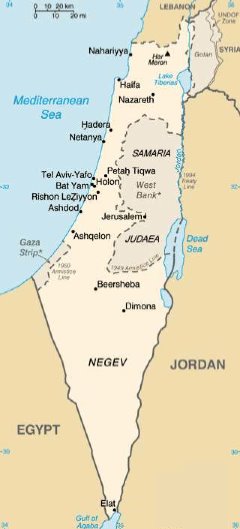On Bolstering Abbas
In a historic meeting between the leaders of Israel, the Palestinian Authority, Jordan, and Egypt, Israeli Prime Minister Ehud Olmert has promised to transfer $35o million to Palestinian Authority President Mahmoud Abbas. He also promised to release 250 Palestinian prisoners as a show of good faith. This announcement comes shortly after the United States and the European Union decided to lift the economic embargo against the Palestinian Authority, a result of Abbas sacking the Hamas government.
King Abdullah of Jordan and Egyptian President Hosni Mubarak voiced their support for Abbas. The Quartet of Middle East Mediators (the U.S., U.N., E.U., and Russia) met today in Jerusalem, suggesting that they believe Israel can work with Abbas as a partner for peace. The Quartet has not quashed rumors that outgoing British Prime Minister Tony Blair will be its new envoy, further suggesting the group sees new momemtum for a peace process.
So is all of this faith that the international community (including Israel) has in Abbas misplaced? In previous posts (From the Horse's Mouth, They're Wrong) I have written how Abbas and his Fatah party are just as bad, if not worse, than Hamas because Abbas says all the right things but has no power or will to implement hard decisions. He gives hope to the Israelis, Palestinians, and international community yet always disappoints, leading to dispair and worse violence.
But shouldn't Israel and the international community at least try to work towards a peace settlement with Abbas, the "voice of moderation?" My mind and my gut says absolutely not, but the remnants of my bleeding heart liberalism past says perhaps. However, there must be strict monitering of any money, weapons, or prisoners released to Abbas & Fatah. Furthermore, Abbas & Fatah must meet certain benchmarks in order to show that they are truly partners. These include:
Once Abbas takes these steps, he will have proven that he is willing to make and implement difficult decisions. Only then can Israel and the international community take any further actions to bolster Abbas and work toward peace and a Palestinian state. If Abbas fails to take these steps, which he likely will, then Israel and all those who desire for peace must look for a different path.



0 comments:
Post a Comment